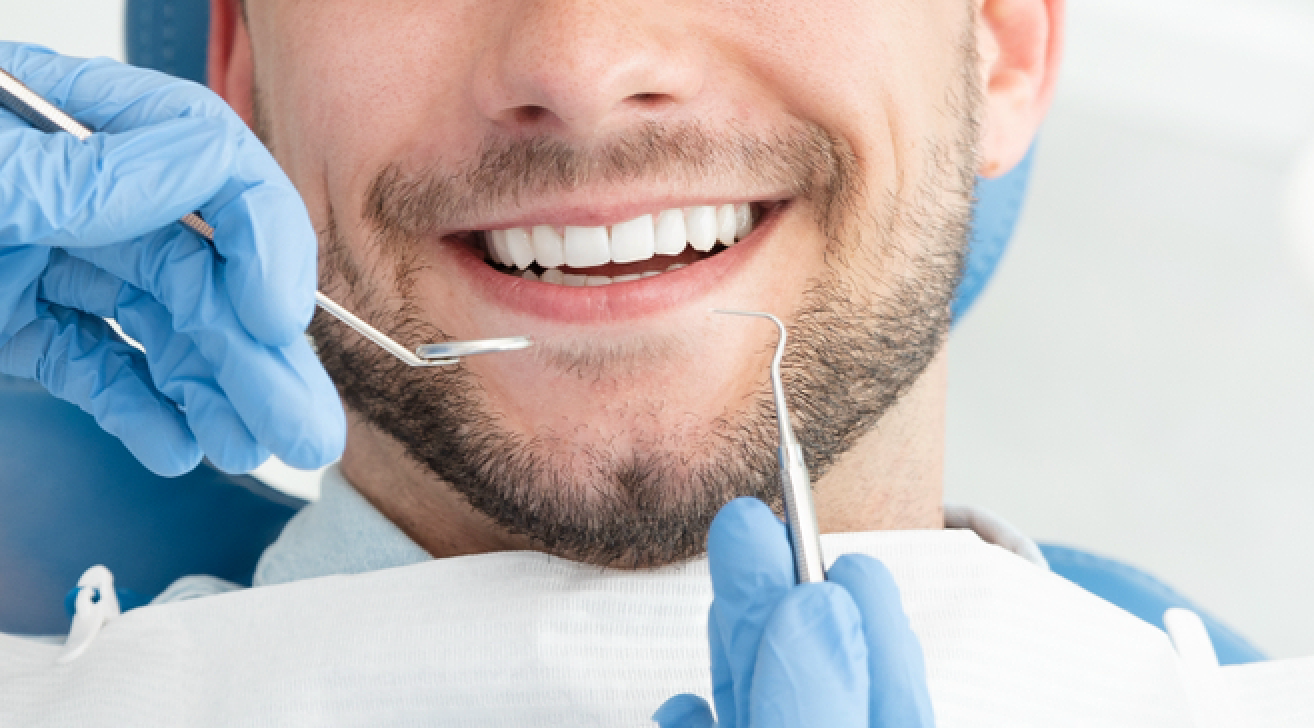Preventive dental care holds the key to maintaining a healthy smile and a healthier lifestyle in general. The likelihood of complicated dental issues can be considerably decreased by adopting proactive, basic dental practices and scheduling routine examinations. In this article, you’ll learn about preventive care and its numerous benefits, encouraging you to enhance your oral health routine.
Tale of Contents:
- Why Preventive Dental Care Matters
- Common Practices in Preventive Dental Care
- How to Start a Preventive Care Routine
- Impact of Preventive Care on Oral Health
- Is Preventive Dental Care Cost-Effective?
- What Data Shows
- The Role of Dentists in Preventive Care
Why Preventive Dental Care Matters
Preventive dental care is vital because it is the first defense against oral health problems. Not only does it help you keep your smile bright and confident and also serves as a protective shield against severe dental issues that require invasive treatments later. To make preventive care more accessible, having tools like dental insurance in New York can significantly aid efforts by reducing regular check-ups and clean-up costs. This is not merely about maintaining healthy teeth and gums. Still, it’s about ensuring comprehensive wellness, as dental health can profoundly impact one’s general health, linking directly to heart disease, diabetes, and other serious illnesses.
Furthermore, preventive care is not just about what we do at home. It’s about the professional care we receive, helping identify potential issues before they become serious. Regular check-ups can reveal conditions that manifest early in the mouth, offering insights into the possible onset of other health complications. Such early detection can lead to timely interventions and overall better health outcomes, emphasizing the necessity and effectiveness of preventive dental care.
Common Practices in Preventive Dental Care
- Regular Dental Cleanings are essential for removing plaque and tartar that cannot be eliminated through regular brushing alone. Professional cleanings help prevent cavities and keep your gums healthy.
- Fluoride Treatments: Particularly effective for children, fluoride treatments help strengthen enamel, making teeth less susceptible to decay. They offer a protective advantage in environments where dietary habits may compromise enamel.
- Application of Dental Sealants: Dental sealants act as barriers, shielding teeth from bacteria that cause cavities. They are particularly beneficial in protecting the harder-to-clean grooves of the back teeth.
- Routine Oral Check-Ups: These check-ups allow dentists to monitor oral health, maintain vigilance against potential issues like gum disease, and offer early intervention treatments.
How to Start a Preventive Care Routine
Creating a preventive care routine is simple yet incredibly impactful. Start with core habits like brushing your teeth at least twice daily using fluoride toothpaste and flossing regularly to combat plaque buildup between teeth. Along with brushing and flossing, restrict sugary snacks and drinks that can cause cavities and include a balanced diet full of nutrients that promote oral health, such as calcium and vitamin D.
Beyond these individual practices, it’s important to enlist the help of a dental professional. Please feel free to consult your dentist for a personalized preventive care plan that addresses your dental needs and concerns. Professional guidance ensures that your regimen is comprehensive and tailored to provide the best protection against potential dental issues.
Impact of Preventive Care on Oral Health
The effects of implementing preventive dental care into your daily routine are profound and wide-ranging. Those who regularly engage in preventive practices report fewer cavities, experience less gum disease, and avoid severe dental interventions. As a result, they enjoy healthier teeth and gums, which translate into better breath, stronger enamel, and more comfortable eating and speaking behaviors.
The positive impact of preventive care extends beyond just oral health benefits. It encourages adopting healthier lifestyle choices, reinforcing good dietary habits, and promoting a holistic approach to well-being. With prevention, the quality of life improves as individuals are empowered to proactively take charge of their health.
Is Preventive Dental Care Cost-Effective?
A common query surrounding preventive dental care is its economic viability. Preventive practices are often questioned against more immediate, reactive dental solutions. However, the truth is that preventive dental care holds quantifiable financial benefits in the long run. As the Mayo Clinic notes, routine dental check-ups and cleanings enable early problem detection, preventing costly, extensive dental procedures that can result when issues are unchecked.
Investing in basic preventive care today can lead to considerable savings tomorrow, making it an effective strategy for managing dental health costs over time. By averting emergencies and reducing unnecessary treatments, preventive care is beneficial not just for your oral health but also for your wallet.
What Data Shows
Scientific research and studies back the efficacy of preventive dental care. People who prioritize preventive care measures have much better oral health outcomes over the course of their lifetimes, according to research from the Centers for Disease Control and Prevention (CDC). This includes notably reduced incidents of cavities, decay, and periodontal diseases, suggesting that preventive strategies are indeed cost-effective and beneficial in the long term.
The evidence supports a strong correlation between regular, preventive dental practices and decreased need for longer and more intensive dental procedures. Thus, it’s clear that engaging in preventive care is both a practical and efficient approach to maintaining comprehensive oral health.
The Role of Dentists in Preventive Care
Dentists play an indispensable role in preventive care. Their expertise and professional services provide critical support in maintaining good oral hygiene and defense against dental problems. Regular visits to the dentist allow for comprehensive oral exams and professional cleanings, which are essential for keeping teeth and gums at their healthiest.
Moreover, dentists educate patients on effective home care techniques and recommend additional care tailored to individual needs. As a result of this relationship, patients and their dentists develop a proactive approach to oral health, which gives people the confidence to take control of their health.










